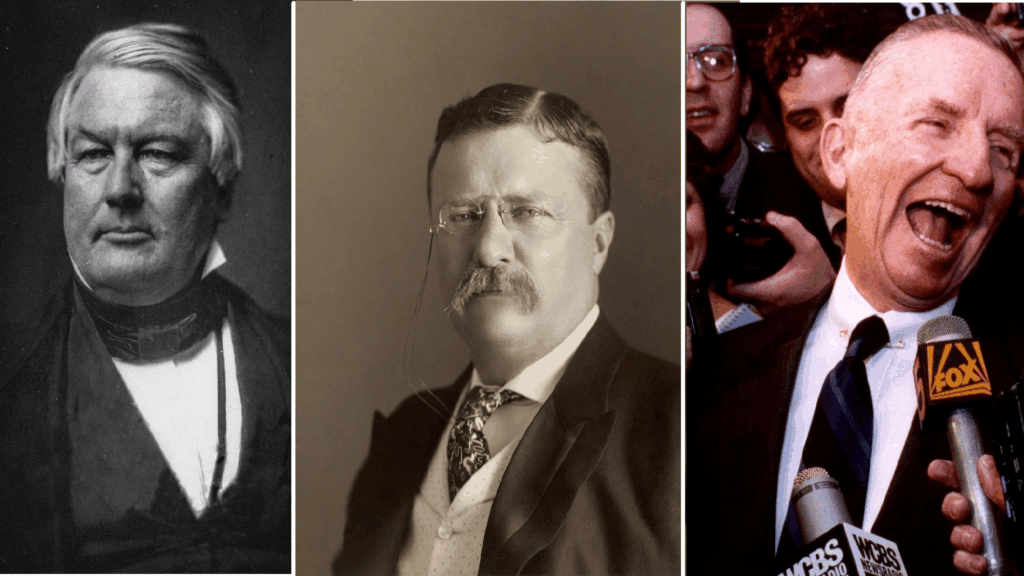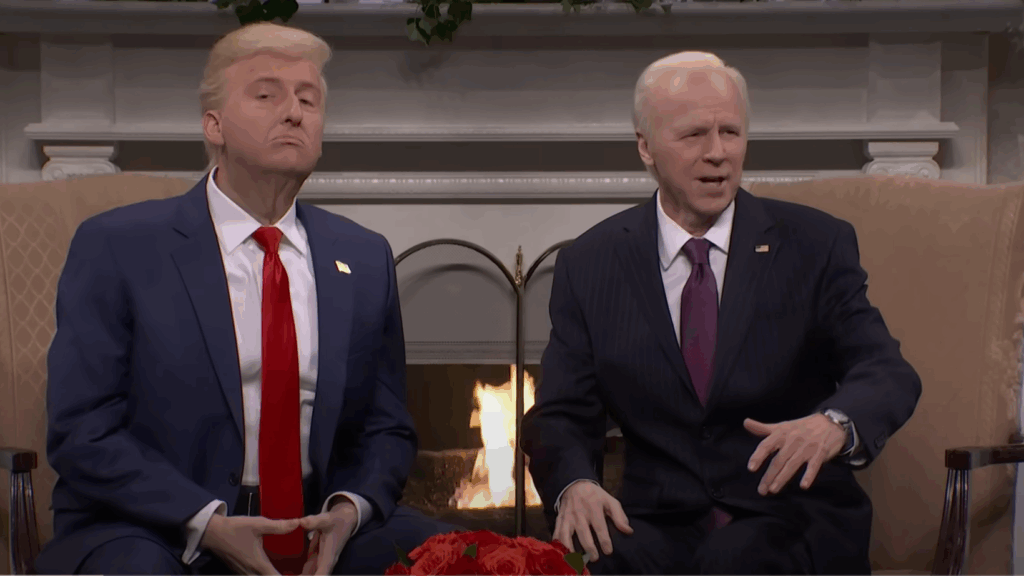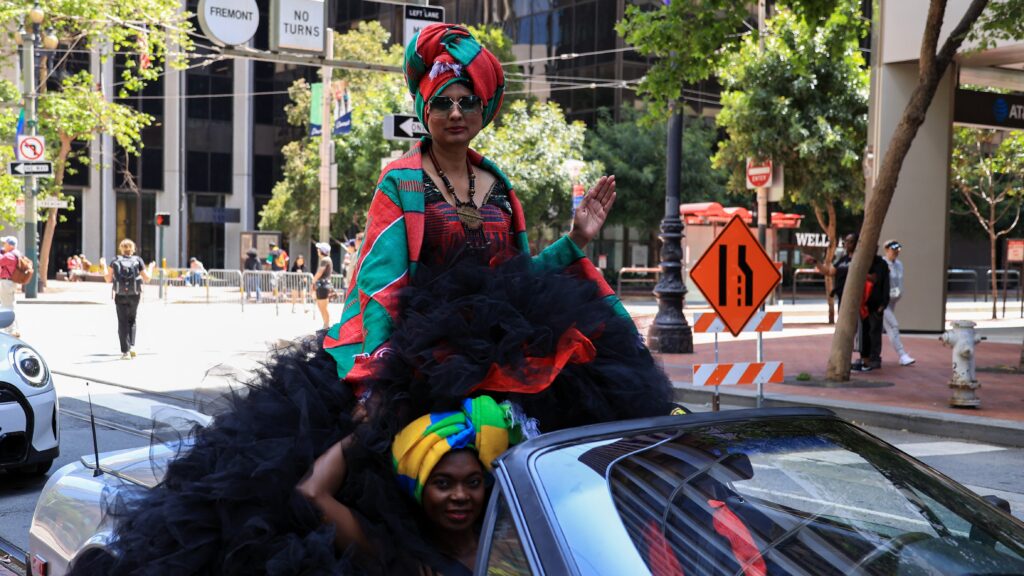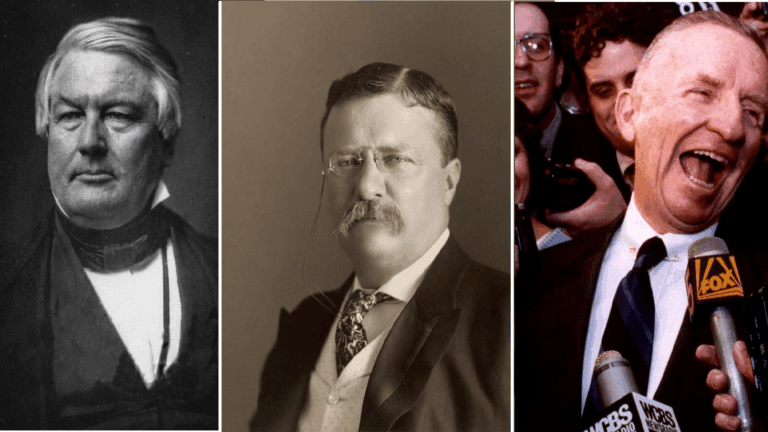This article was published in Vol. 4 No. 1 of our print edition.
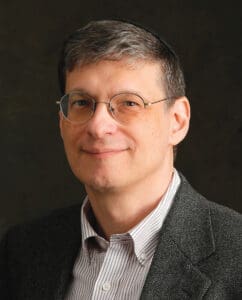
Yoram Hazony’s Conservatism: A Rediscovery (2022)1 is an important book, both in itself and in its potential influence as a torchbearer for a resurgent national conservatism, which is proving fashionable and influential in both the United States and Britain. The book is indeed written in a somewhat campaigning spirit, insistent on distinguishing the type of conservatism and indeed politics Hazony espouses from other versions of conservatism and also, and more importantly, from what Hazony considers rationalistic liberalism, which he considers fundamentally destructive of human life and value. This crusade is waged by means of a history of conservatism as it developed in Britain and the US, followed by philosophical and political reflections and, after some highly personal reflections on the author’s own journey to his present position, concludes with a stern injunction to live and act in a morally conservative spirit over and above merely enunciating its doctrines. Hazony clearly has no time for the legendary Fleet Street conservatives of old, preaching family values, sobriety, hard work, and the rest in their columns, while leading a louche and even dissolute life in pubs and with what might politely be called complex personal entanglements.
To see what Hazony is about it will be helpful to list, as he does a number of times, the essential principles of his own conservatism. These are: historical empiricism (that is, an understanding that constitutions, or at least those he admires, come from a process of specific historical development, through trial and error); nationalism (that a decent and well-functioning society will arise from a sense of national belonging and loyalty); religion (justice and public morals in society will depend on honouring God, and also on respecting and fulfilling the values of the family and the religious congregation or church); limited executive power (with a strong executive, but limited by the representatives of the people); and, finally, individual freedom (freedom of the individual against an over-mighty and arbitrary state). It will be noted that freedom is only one and not the most important value in Hazony’s conservatism.
Against his rediscovered conservatism, Hazony pits his main adversary, which he refers to as ‘liberalism’, as embodied in Enlightenment rationalism. Its tenets, according to Hazony, are the belief that reason and reason alone can discover universal truths about what is desirable for any society or people expressed in terms of abstract rights; the belief that individuals as such should always be treated as free and equal; and finally that political and other obligations arise from choices we make as individuals and are fungible at will. Hazony is aware of the power of these ‘liberal’ tenets, but thinks that their widespread acceptance has undermined the values needed to keep society coherent and decent, with individuals increasingly mired in moral perplexity and difficulty. Hazony sees the current fashions for Woke political and social causes campaigning on a raft of egalitarian, anti-racist, and sexual fronts as simply the latest iteration of these liberal tenets, particularly the tenet that ‘what I am and should be is what I chose to be’, and that society itself is founded on the choice of contracting parties and may be altered if those parties change their minds.
Hazony seeks to justify his views on conservatism and liberalism first by reference to the history of conservative thought in Britain and the United States. As far as the United States goes, much of what he says will be familiar enough, dwelling as he does on the early wrangles between Thomas Jefferson, Thomas Paine, and their confederalist followers against the more conservative and federalist among the early framers of the Constitution: John Adams, Alexander Hamilton, Gouverneur Morris, and the like. Hazony sees this as a classic dispute between universalist rationalists, favourably disposed to the French Revolution, and those who saw the new nation being formed as a continuation of the old British nation they were seceding from. Up to a point, and for some time, the latter prevailed, with the United States cast as both a nation and God-fearing, though only up to a point. Hazony deplores the way that the Supreme Court and politicians in the United States have increasingly invoked abstract universalist principles to modify and override the Constitution, though he has to admit that on the question of the removal of racial segregation in 1954 at least this was justified.
In discussing British (or originally English) conservatism Hazony mentions John Fortescue, Richard Hooker, and John Selden, whom he describes as the ‘greatest conservative’, and who later in his book is cited as an opponent of any idea of a universal moral thread discernible through the vagaries of history and diversity of societies—a point to which we will return. However, somewhat surprisingly, he makes no mention of Magna Carta, in which arguably a universal principle is enunciated, that the rule of any particular king is subject to the law of God. Certainly, that would be consistent with the natural law theory being developed in the thirteenth century, which found its greatest expression in the writings of St Thomas Aquinas. For St Thomas, human beings do have a God-given ability rationally to discern the moral law and indeed truths about God and the world, even if our reason is subject at times to distortion and blindness owing to original sin. Nevertheless, we can and should exercise our reason so as to enable us to act well and in accordance with natural law. But, as we will see, Hazony is dismissive of our rational ability to ascertain the working of this natural law, against which human law, traditions, and customs are to be measured.
Hazony does, of course, mention Edmund Burke. But, to my mind, he gives a skewed interpretation of Burke, concentrating only on Burke’s sense of the historical tradition underlying the English or British constitution and his abhorrence of the abstract principles of right invoked by Richard Price and the French revolutionaries. However, Hazony completely overlooks Burke’s espousal of our natural rights to life and liberty, to justice, to the fruits of our industry, and to the nourishment and improvement of our offspring. These and other rights are no doubt expressed and articulated differently in different times and places, but they are, under God, fundamental to human flourishing, and against them particular dispensations should be judged and, if necessary, reformed. Hazony makes a great deal of a supposed contrast in this area between Burke and John Locke, but while Burke emphasized more than Locke the importance of tradition and the sense that the stock of reason in each man is small, at root the two are not so different, both defending individual liberty within a polity ordered by principles of natural law.
‘Hazony does indeed argue for his religious position, on the grounds that the attitudes he wants in a conservative society…need to be upheld by religious belief and practice’
Whether what I say about Burke is correct or not, what I see as Hazony’s fundamental weakness comes out clearly in his consideration of Leo Strauss in a section devoted to more modern conservative or would-be conservative thinkers, including such figures as Russell Kirk, Friedrich Hayek, William Buckley, and Irving Kristol, as well as Strauss. Strauss, as Hazony points out, distinguishes between the Platonic rational discernment of universal truths and the authority-dominated appeal to tradition, and between societies dominated by the one or the other. Leaving aside the question of whether Strauss is right in seeing societies as so clearly divided in such terms, Hazony goes on to say that Strauss locates his rationalism in a tradition ‘with its roots in Plato and Aristotle, extending through Aquinas and up to John Locke’. It is based on a belief in ‘natural right—that is, the belief that eternal, universal, necessary political truths can be discovered by reason.’2 It is precisely this that Hazony rejects, John Locke being one his bêtes noirs in this respect, and the intellectual ancestor of Thomas Jefferson and the abstract rationalistic wing of the American founding fathers.
The reasons that Hazony rejects any kind of rationalistic universalism are, as far as I can see, twofold. First, like Selden, he is impressed, indeed over-impressed, not only by the diversity of moral and political beliefs but also and perhaps more by the way that each of us is, whether we realize it or not, immersed in our own system of belief. In other words, he is influenced by what Karl Popper called the myth of the framework. The myth of the framework correctly observes that we all begin from a given starting point, Enlightenment rationalists as much as the most benighted religious fundamentalists, whether we realize it or not. We may well never get to question this starting point or the system in which it is embedded, which can produce a degree of complacency or prejudice on our part. However, when we are confronted with an opposing or different viewpoint, we can and indeed should begin to ask questions about the oppositions. We are not so constrained by our framework that we cannot use our reason to consider, even re-consider, just what that framework is and what it commits us to. To think that we are is a myth. So, as actually happened, John Newton, an initially unthinking slave trader, began to wonder about the slaves he was transporting across the Atlantic, and maybe even talk to some of them. He became an opponent of slavery, and went on to write ‘Amazing Grace’. In this context, one could also mention the extraordinary impact of Josiah Wedgwood’s much circulated medal bearing an image of an African slave together with the words ‘Am I not a man and a brother?’ People can and do change their minds, or escape their frameworks, if you like. And they often do so on the basis of reasoning, and the recognition of wider, more universal perspectives than those they were initially enclosed by, a more universal perspective being one that can be shared by more people from different starting points and perspectives.
Hazony also rejects the power of reason in moral and political matters because he observes with dismay the way that the secular, often atheistic influence of Enlightenment thought and post-Enlightenment thinkers and propagandists has tended to undermine traditional beliefs and practices. These include the way that religion has been forced out of the public square, the way that the notion of the stable two-parent heterosexual family has come under increasing pressure, the current upsurge of pornography and drug taking, and the way that loyalty to or respect for one’s nation has diminished almost to the point of extinction among the more educated in the West, leading to calls for global free trade, unrestricted immigration, and the wiping away of borders. One can, as Hazony does, deplore these and other developments, and one can, if one likes, trace their ancestry back to the thought of such figures as Voltaire, Nicolas de Condorcet, Paul-Henri Thiry d’Holbach, and the like, and even perhaps to David Hume, awakening us from our dogmatic slumbers. But the way to deal with such matters as religion, the family, personal depravity, and the nation is not to stop reasoning and go back to sleep in some traditionalist cocoon, as Hazony’s critics might say he is advocating. It is precisely to reason on the basis of considerations relevant to human flourishing, and to show how the supposed sicknesses of our time militate against our flourishing, individual and collective.
Of course, reasoning about human flourishing in general will not tell us how general aims in this area should be implemented in particular times and places. This is where the conservative critic of abstract principles is right. The Aristotelian practical syllogism is not an automatic algorithm in which specific conclusions follow directly from unquestionable principles. It must always be adapted to the time and place, and the principles involved have to be weighed up one against the other, as for example when we want to measure a plea for equality against considerations of liberty, or the necessity for justice in a particular case against a plea for mercy. It is a matter of judgment in the specific circumstances one finds oneself in, and this should caution us against too radical a transformation of existing institutions and arrangements. But the fact that abstract, universal reasoning is not sufficient for policymaking in specific circumstances does not show that it is not necessary.
How else are we fairly and correctly to judge that a particular arrangement or policy needs revision or reform, except by reasoning of a general sort, and open in its conclusions to more than just one point of view or interested party? Without this type of justification, policymaking will degenerate into a mere exercise of power, with no more weight or reason behind it than the mere fact that I or my friends want this or that for our own private, individual ends, and not because is actually desirable or necessary. My fear is that in his wholesale rejection of the necessity for abstract or universally acceptable reasoning in practical and political matters, Hazony has enclosed himself in the very relativism he says elsewhere that he deplores in modern society. He thus actually opens himself to the accusation Woke critics make of law-governed policymaking in Western societies, that it is all and only a matter of who has the power to implement what they want.
To repeat, abstract reasoning of the sort Strauss advocates and Hazony rejects is not sufficient for policymaking, but it is certainly necessary. Hazony needs to distinguish in this area between sufficient and necessary conditions, something Burke always did when he defended the rights of the American revolutionaries and of Catholics in Ireland, while at the same time opposing the depredations of the East India Company in the sub-continent and, of course, of the unreasonable and jejunely ungrounded ‘reasoning’ of the French revolutionaries. What was wrong in this last case was not that they reasoned or invoked abstract principles, but that they did so without regard to circumstances, cost, or consequences, a mistake Aristotle, Aquinas, and those who upheld their legacy would always have striven to avoid.
‘I have to conclude that, for all its merits and passion, Hazony’s book offers us no more than a dream’
Having mentioned Hume, I must now turn to another problem with Hazony’s conservatism. Alert readers may have noticed that Hume is not mentioned in Hazony’s list of conservative thinkers, and nor are Michael Oakeshott, Anthony Quinton, or, in our own day, John Kekes. And the reason is surely that while Hazony argues that a faith in the biblical God (Hebrew or Christian) is necessary to underpin a rediscovered conservatism, neither Hume nor the others mentioned invoke any supposed need for religion in their political philosophies. They consider it unnecessary, yet they are great conservatives, and would share many of Hazony’s attitudes. Hazony does indeed argue for his religious position, on the grounds that the attitudes he wants in a conservative society, such as loyalty and respect for family and parental rights, need to be upheld by religious belief and practice. But is it the case that, as he says, participation in a religious ‘congregation’ is actually necessary for the conduct of civilized life?3 Is this an empirical question or something more fundamental? It is hard to know just how we should assess this claim, which Hazony does more to assert than to justify. And one’s worries here become more pronounced when it emerges that the congregations he is talking about are those of the synagogue and Christian churches: ‘Christianity and Judaism must be recovered as the normative framework and standard determining public life wherever a majority is wise enough to adopt this course.’4 That is conservative democracy. But does this mean that Hindus, Muslims, and Buddhists are all excluded? It is a rather pertinent question in Britain, where we have recently had cabinet ministers from all these faiths. Further, does Hazony’s rediscovered conservatism have anything to say to those parts of the world that are not Christian or Jewish? Of course, their traditions will not be the same as those in the West, and we would not be suggesting that our Western interpretations of law, democracy, and the rest should be imposed on peoples unprepared for or even resistant to them, but it might be that many of the attitudes Hazony is arguing for might be very appropriate to other cultures and parts of the world, particularly on such matters as the family, loyalty, and tradition.
This question about the religious basis of rediscovered conservatism actually bears on what Hazony says about universal reasoning. After all, leaving aside what the Jewish position on this point may be, if the Christian God is to be seen as universal, as Aquinas for example, thought, is it conceivable that He would not have equipped all human beings with the light of natural reason, so as to know what is truly right and wrong? Aquinas certainly thought He had, original sin notwithstanding. We could also mention here C. S. Lewis’s invocation in The Abolition of Man of what he called the ‘Tao’, a set of general moral principles based to an extent on the golden rule, which he finds in a number of the major world cultures and traditions, and without invoking anything specifically religious.5 If there is anything to this, and recent anthropological studies have to an extent confirmed Lewis’s claim, then why should we fight shy of seeing some universal moral principles as being necessary, if not sufficient, for decent reasoning about politics, and, as Lewis does, defensible without direct appeal to religion?
Aside from Hume and the others I have mentioned, there is one other prominent conservative thinker not mentioned by Hazony, surprisingly perhaps, because he and Sir Roger Scruton do share a number of attitudes. But there is one significant difference. Where Hazony talks about nation and tribe, as if there need be no significant difference, Scruton is insistent that there is. For Scruton, what defines conservatism is a shared sense of home and specifically a national home. People bound by a sense of a national home may be different in race and religion, as they manifestly are in the United States. However, they will all feel a sense of belonging to the nation where their home is, albeit not as members of the same tribe. This suggests a greater sense of openness and diversity than we find in Hazony, and also that Scruton’s form of conservatism is more adapted to the modern world than Hazony’s.
The question I am left with about Hazony’s rediscovered conservatism is whether it is a conservatism that is, or could be, rediscovered, or is it a conservatism that has never existed. And, even if it did exist at one time, could it ever exist in current circumstances, in which we live in a far more open type of society than Hazony envisages? If this latter is not the case, then as one who values aspects of our openness and indeed our rationality more than Hazony appears to, I have to conclude that, for all its merits and passion, Hazony’s book offers us no more than a dream.
NOTES
1 Yoram Hazony, Conservatism: A Rediscovery (Washington, DC: Regnery Gateway, 2022).
2 Hazony, Conservatism: A Rediscovery, 292.
3 Hazony, Conservatism: A Rediscovery, 342.
4 Hazony, Conservatism: A Rediscovery, 345.
5 See O. S. Curry, D. A. Mullins, and H. Whitehouse, ‘Is It Good to Co-Operate? Testing the Theory of Morality as Co-Operation in 60 Societies’, Current Anthropology, 60/1 (2019), 47–69.


